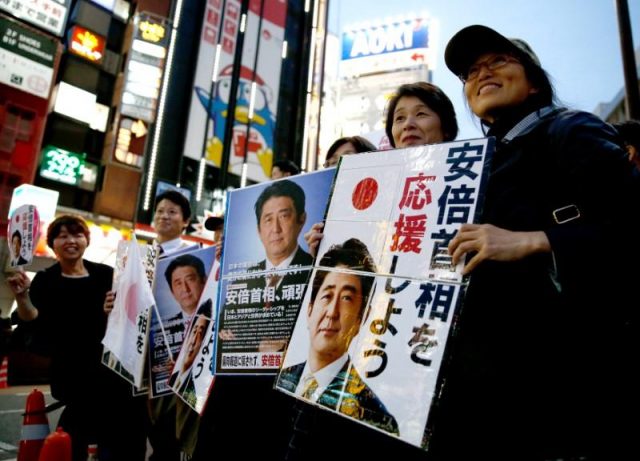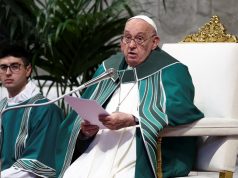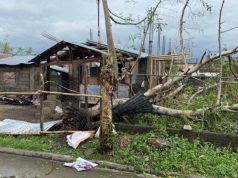
TOKYO — Typhoon Lan, known in the Philippines as “Paolo,” is expected to hit southern Japan with heavy rains and destructive winds on Sunday, when the nation holds a national election, forcing officials in Okinawa to stage voting a day early on some remote islands.
The Category 1 typhoon, located east of the Philippines on Friday morning and moving north, is expected to gain strength as it comes some 200 kilometers (125 miles) east of Japan’s southern island of Okinawa by Sunday, the Japan Meteorological Agency said.
Risk of floods, landslides remains as ‘Paolo,’ LPA continue to dump rains
“It will likely rain very heavily in the Nansei island chain (in southern Japan), in the Pacific side of western and eastern Japan from the 21st to 23rd. There is a chance it will rain violently in some regions,” the agency said in a statement.
According to the Tropical Storm Risk web site, the typhoon will likely strengthen to category 3, but weaken again by the time it brushes past Tokyo on Monday.
Local authorities in Okinawa have decided to move the voting date to Saturday for some remote islands.
Tomoaki Iwai, political science professor at Nihon University, said the adverse weather is likely to hurt the standing of a new party led by popular Tokyo Governor Yuriko Koike, the Party of Hope.
“Voters with no party affiliation tend not to go and vote (under the bad weather). So, parties that are dependent on the general mood of the voters at a given time, like the Party of Hope, are set to suffer,” Iwai said.
He said some supporters of Prime Minister Shinzo Abe’s Liberal Democratic Party may opt not to brave the weather and vote as well, believing, based on recent media polls, the ruling party has got the election in the bag.
The LDP-led coalition is on track to roughly match the two-thirds “super majority” it held in parliament’s lower house before dissolution, helped by divisions in the opposition camp and jitters over North Korea’s nuclear and missile programs, media forecasts have said.









